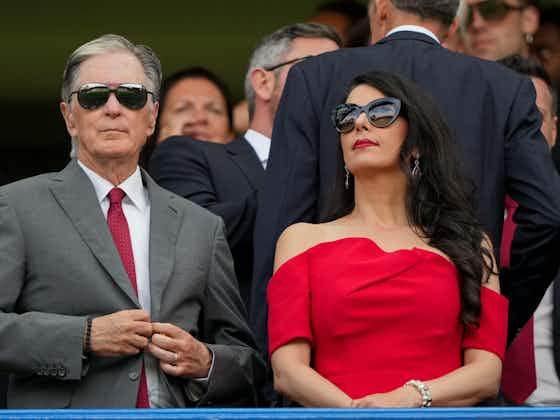Anfield Index
·15 mai 2024
David Lynch: Julian Ward’s Arrival Will Aid FSG’s Multi-Club Model

In partnership with
Yahoo sportsAnfield Index
·15 mai 2024

In the world of football, strategies don’t just play out on the pitch; they are increasingly becoming a pivotal part of the boardrooms. This strategic shift is particularly apparent in the latest movements by Fenway Sports Group (FSG), as detailed by David Lynch on the Anfield Index’s ‘Media Matters’ podcast. Lynch’s insights provide a fascinating glimpse into the transformative steps Liverpool’s ownership is undertaking with their new multi-club model approach.
David Lynch articulates a clear trajectory for FSG’s strategy, stating, “I think with the FSG appointments, I definitely think it all relates to wanting a multi-club model.” This statement underscores a deliberate pivot towards a holistic management style, where integration and resource-sharing across clubs under the FSG banner are likely to become the norm. The addition of figures like Richard Hughes and the potential contributions of Julian Ward are pivotal. Lynch believes that Ward will “contribute massively to that multi-club idea,” suggesting an expansion of Liverpool’s operational philosophy to possibly mirror successful multi-club entities in European football.
The multi-club model isn’t new in football, but it is a relatively fresh venture for an English Premier League club. This model offers numerous advantages, such as streamlined scouting networks, shared medical and data analysis expertise, and a unified approach to player development. For Liverpool, this could mean enhanced efficiency and perhaps a more competitive edge in both domestic and international arenas.
Lynch elaborates on the appointments by FSG, suggesting, “I think a lot of these FSG appointments are pointing towards that new model and I think it will definitely start to progress.” Such progression could fundamentally alter how Liverpool operates, promoting a more interconnected and strategic framework that could set precedents within the Premier League.
However, the shift to a multi-club model also brings with it certain challenges. One of the primary concerns will be maintaining club individuality and local fan engagement while managing multiple clubs under a single umbrella. Moreover, the effective integration of different club cultures and the alignment of objectives across various levels of the organisation will be crucial for the model’s success. FSG will need to navigate these waters carefully to avoid diluting the brand’s core values and ethos which have been cultivated over decades.
As FSG moves forward with this model, the implications for Liverpool and the broader football landscape are significant. Will other Premier League clubs follow suit if FSG’s strategy proves successful? Lynch’s commentary not only highlights the tactical shifts within Liverpool’s management but also invites speculation about the potential ripple effects throughout football. This model could very well set a trend that redefines club operations across leagues.
In conclusion, Lynch’s observations from the ‘Media Matters’ podcast illuminate a strategic pivot that could reshape not just Liverpool, but potentially the structure of club football in England and beyond. As FSG continues to roll out its multi-club model, the football world will be watching closely, eager to see the outcomes of this bold move.


Direct





























































